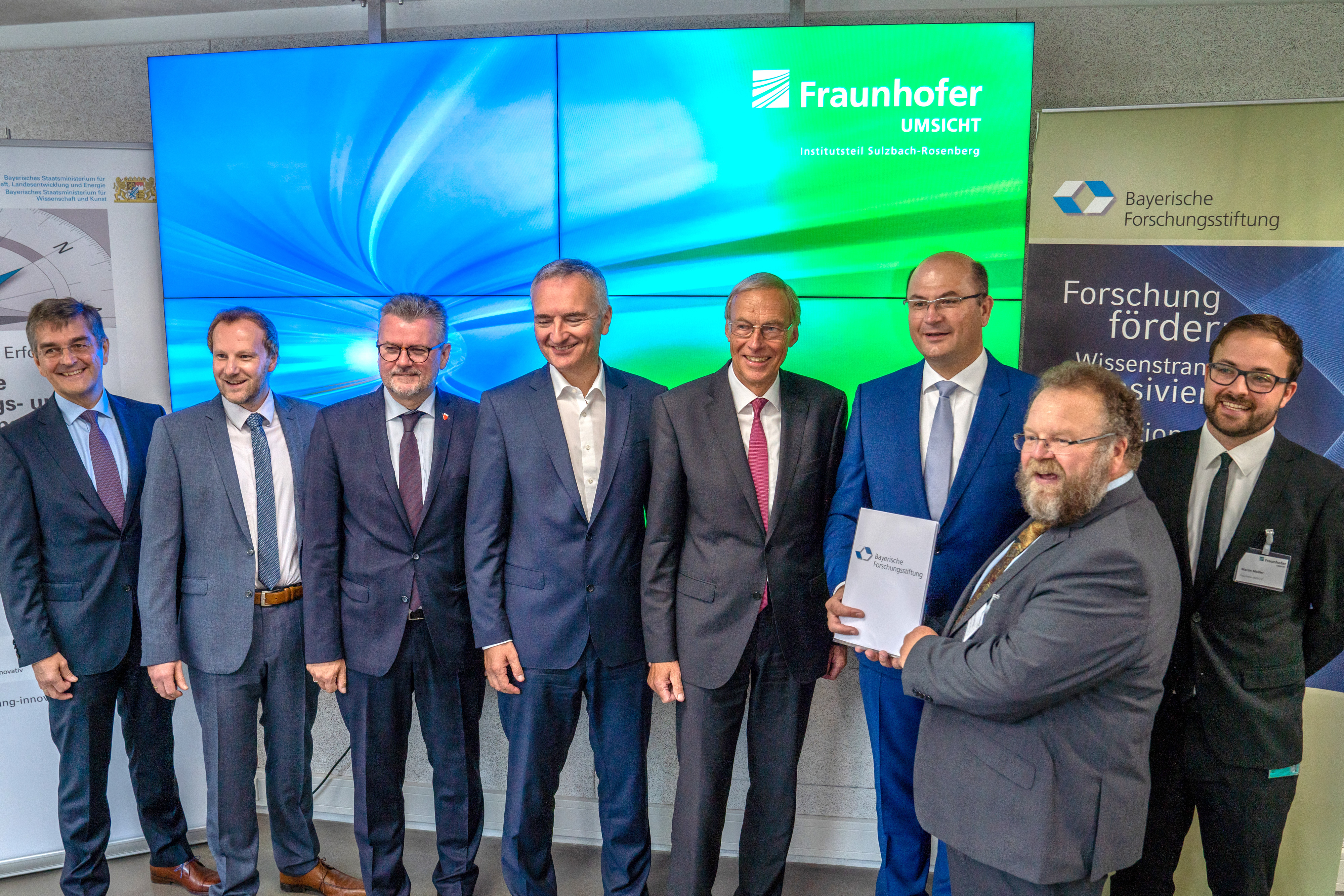Online fuel analysis enables predictive control
Predictive combustion control in waste incineration plants
In »AdOnFuelControl«, a predictive control system for incineration plants is to be developed, in the concrete example of waste treatment. This will enable more efficient plant operation with lower costs and lower emissions. The project is funded with 340,000 euros by the Bavarian Research Foundation. The funding decision for the Fraunhofer Institute UMSICHT was presented by the Bavarian State Minister for Finance and Home Affairs, Albert Füracker, on September 12, 2019 in Sulzbach-Rosenberg.

»AdOnFuelControl« stands for adaptive online fuel characterization of heterogeneous fuels for optimized combustion control. In the project, the control of plants for the incineration of heterogeneous solid fuels (waste, substitute fuels, biomass) is to be fundamentally optimised, with the focus on residual waste or waste incineration plants (WIP).
Especially in the case of residual waste as a feedstock, calorific values, water and ash content, chemical composition, pollutant load and bulk density are subject to strong fluctuations depending on the type of waste. In waste incineration plants, these differences lead to uneven combustion with the consequences of reduced performance, increased wear and increased emissions. As a result, thermal overloads can cause damage to the lining, boiler and grate and, in the worst case, to the plant at a standstill.
New sensor technology allows predictive control
While conventional combustion control systems currently only react retrospectively to such varying fuel compositions, the aim of the project is to implement a control system that works with foresight. This is made possible by using innovative sensor technology (including 3D laser scanners) to analyse the fuel used "online" and then calculate the calorific value. This data is then used for optimized plant control. This step is to be developed in the project and implemented in large-scale technology.
Goal: Lower costs, lower emissions
As a result, the optimised control system can achieve more stable, flexible and efficient plant operation with lower operating costs and lower emissions. If such proactive controls were to be used in all 70 German waste incineration plants, the project members estimate the total CO2 savings potential at 32,000 tonnes per year with a reduction in harmful gas emissions. Lower operating costs for waste incineration plants could also have a stabilising effect on disposal costs.
The project partners Fraunhofer UMSICHT, SAR GmbH Process and Environmental Technology and GKS - Gemeinschaftskraftwerk Schweinfurt GmbH combine process engineering know-how with competences in the fields of digitisation, firing technology, fuel characterisation and automation. A successful realization of the project is the starting point for a fundamental optimization and further development of control strategies in the field of solid fuel combustion.
The project with a total volume of EUR 700,000 is funded by the Bavarian Research Foundation with EUR 340,000.
Last modified:
